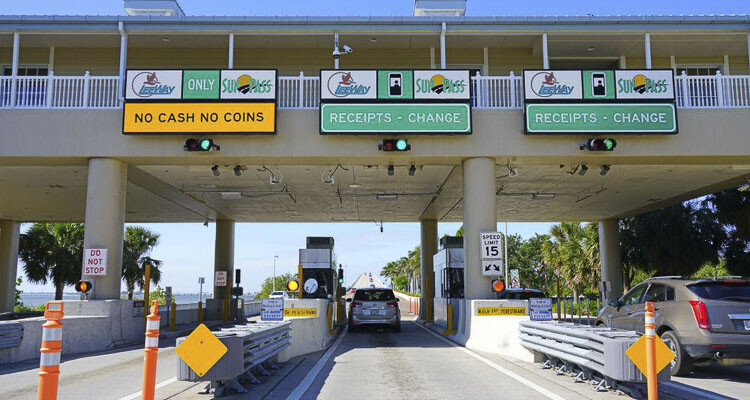
Fuel tax revenues are projected to fall by $600 million, or roughly $21.4 million per year, over the next 28 years
Timothy Schumann
The Center Square Washington
In a report submitted to Gov. Jay Inslee and the Washington Legislature, the Washington State Transportation Commission proposed a new tax scheme to replace falling fuel tax revenues.
Fuel tax revenues are projected to fall by $600 million, or roughly $21.4 million per year, over the next 28 years, as previously reported by The Center Square.
Citing declining fuel tax revenue due to increased efficiency of engines and adoption of electric and hybrid vehicles, the report highlights the need to find alternate sources of revenue for the Washington State Department of Transportation to maintain Washington’s roads.
The WSTC recommends continuation of an exploratory program that began in 2012 researching the viability of a Road Usage Charge, or a per mile tax on all miles driven by residents of the Evergreen State – a gasless gas tax, if you will.
“As an alternative to higher motor fuel taxes and vehicle fees, RUC offers the potential to fund Washington’s transportation needs while preserving the user-pay principle previously embodied by fuel taxes,” the report states.
The report admits there are many decisions left to be made “including how to measure and report distance traveled in a manner that protects privacy, offers user convenience, and is reasonably cost-effective to collect.”
The pilot, or test, phase of the RUC program launched in November of 2022 and had three simulated options for payment: FlexPay, Exempt, and AutoPilot.
FlexPay would enable lump sum- or installment-based self reporting. Exempt was for out of state or off-road miles with documentation needed to back up the claims.
The third option, AutoPilot, would allow “motorists to report road usage directly from their vehicles using on-board telematics. Eligible participants who opt in for this experience will be asked to activate their in-vehicle telematics program, which will then allow the project team to access data describing the number of miles driven in Washington provided by project partner Via.”
In other words, it would mean a third party private company collecting data in real time from your vehicle on behalf of Washington State.
If the report’s recommendations are followed, the initial RUC tax would be 2.5 cents per mile driven in Washington state on government maintained roads and would require annual odometer readings.
It’s unclear at this time how odometer readings would be implemented or enforced, and how this would affect people’s privacy.
The report notes that its odometer regime may require the “WSTC and DOL to collaborate with other states, other nations, and automakers to advance long-term solutions for mileage reporting and payment across borders.”
This report was first published by The Center Square Washington.
Also read:
- Busy pavement season ahead on Vancouver streetsThe city of Vancouver is set to repave and preserve 76 lane miles across 20 neighborhoods in summer 2025, with ADA upgrades and community notices throughout.
- State representative: Expect sticker shock when Interstate Bridge project officials reveal price, tolling plansAt a town hall in Battle Ground, Rep. John Ley warned of major cost increases and tolling burdens tied to the Interstate Bridge replacement project.
- Opinion: Washington state lawmakers increase the cost of driving – againBob Pishue of Mountain States Policy Center argues that new vehicle and fuel taxes in Washington will raise driving costs while diverting funds away from roads.
- Overnight full closure of I-5 near Woodland for bridge inspection, May 6WSDOT will fully close southbound I-5 near Woodland overnight on Tuesday, May 6 for a bridge inspection using a chain drag test.
- Opinion: Do we still need TriMet?John A. Charles Jr. of the Cascade Policy Institute argues that TriMet should halt expansion plans and prepare for major service reductions in response to falling ridership and rising costs.










The hell with this.Weve already paid for those roads and pay yearly for their upkeep.
Just a money scam by government to drain your account.
They will never get any of your money.
Exactly. Push these electric useless expensive as heck cars and lets add tolling on everything. Islee is a joke.
For Toll Bridges in WA, the fee to collect the toll is outrageous, 50% or more of the toll goes to the company collecting the toll. It’s a racket, and seems to be about monitoring WA vehicles at all times. WA state has a generous surplus, and there is no need to raise taxes and fees every year as been happening since One Party Rule under the heavy hand of the Democrats a few years ago
stop voting for democrats and many problems go away
I Would be willing to pay a .25 cent Add on every time I got gas. NO TOLLS. Tolls were invented in New York by the mafia. The biggest problem in New York is they had to create another committee and police force to enforce and collect the money. I have received 2 bills to pay a toll in Seattle. I maybe was there 20 years ago? Not my bill??
There are plenty of communist countries these bought off politicians can move to and get immediate satisfaction instead of destroying this state. Pack your bags and don’t let the door hit you in the ass.
These are actually
gestapo check points. Inslee is a good little lock step minion. He is the REAL domestic terrorist.